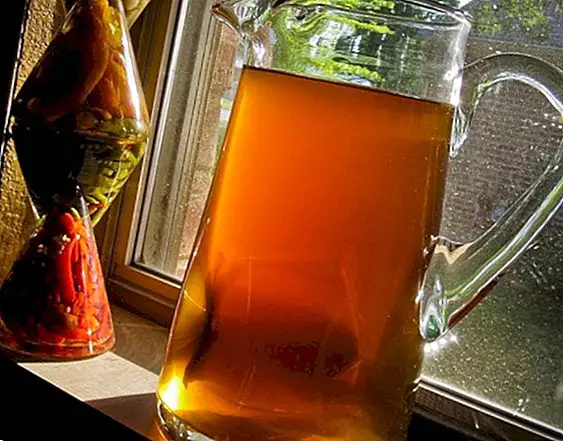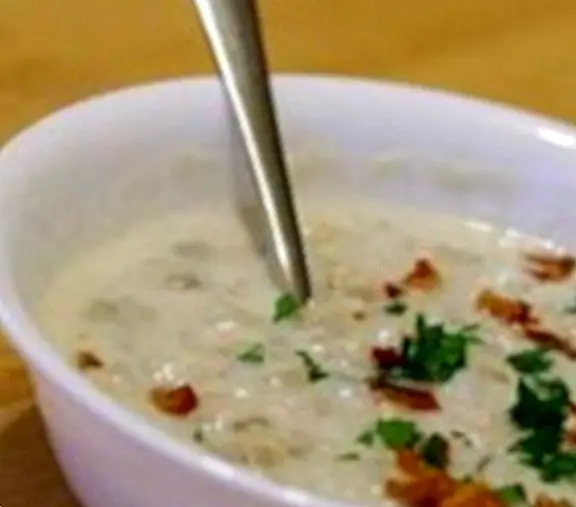Nutritional information of tea
The tea (in all its varieties) it becomes one of the most consumed natural drinks in the world, especially in countries such as Japan, China and India.

In the last decades, the consumption of this plant has increased in our country, as a result of the fact that a whole series of nutritional and medicinal studies have been published that speak about the different benefits and medicinal properties that it brings.
In reference to which varieties of tea are the most consumed, we find ourselves above all with the Green Tea, the Red tea and the black tea.
Among its most important benefits we find that it is an antioxidant drink, especially rich in catechins and polyphenols, which help in the protection against cancer and in the prevention of the negative effects of free radicals. In addition, they help to burn fat, are positive against overweight and prevent cardiovascular diseases. Among other important virtues.
Green tea nutrition information
1 cup of green tea provides:
Calories | 2 kcal. | ||
Proteins | 0.1 g | ||
Carbohydrates | 0.4 g | ||
Catechins | 30 – 45% | ||
Flavonoids | 5 – 10% | ||
Theanine | 4 – 6% | ||
Total fat | 0.1 g. | ||
Fiber | 0 g. | ||
Vitamins | Minerals | ||
Vitamin C | 6 mg. | Potassium | 27 mg. |
Vitamin B2 | 0.05 mg. | Calcium | 3 mg. |
Vitamin B3 | 0.2 mg. | Magnesium | 2 mg. |
Vitamin B6 | 0.01 mg. | Manganese | 0.31 mg. |
Nutritional information of red tea
1 cup of red tea contributes:
Calories | 3 kcal. | ||
Proteins | 0.2 g | ||
Carbohydrates | 0.5 g | ||
Catechins | 30 – 40% | ||
Flavonoids | 5 – 15% | ||
Theanine | 4 – 8% | ||
Total fat | 0.1 g. | ||
Fiber | 0 g. | ||
Vitamins | Minerals | ||
Vitamin C | 5 mg. | Potassium | 27 mg. |
Vitamin B2 | 0.04 mg. | Calcium | 3 mg. |
Vitamin B3 | 0.3 mg. | Magnesium | 2 mg. |
Vitamin B6 | 0.05 mg. | Manganese | 0.31 mg. |
Black tea nutritional information
1 cup of black tea provides:
Calories | 2 kcal. | ||
Proteins | 0.1 g | ||
Carbohydrates | 0.4 g | ||
Catechins | 30 – 45% | ||
Flavonoids | 5 – 10% | ||
Theanine | 4 – 6% | ||
Total fat | 0.1 g. | ||
Fiber | 0 g. | ||
Vitamins | Minerals | ||
Vitamin B2 | 0.05 mg. | Match | 4 mg. |
Vitamin B3 | 0.1 mg. | Calcium | 5 mg. |
Fluorine | 3.2 mg. | ||
Iodo | 8 mcg. | ||
Chrome | 110 mcg. | ||
Selenium | 6 mcg. | ||
White tea nutritional information
1 cup of white tea contributes:
Calories | 2 kcal. | ||
Proteins | 0.1 g | ||
Carbohydrates | 0.4 g | ||
Catechins | 30 – 45% | ||
Flavonoids | 5 – 10% | ||
Theanine | 4 – 6% | ||
Total fat | 0.1 g. | ||
Fiber | 0 g. | ||
Vitamins | Minerals | ||
Vitamin C | 6 mg. | Match | 5 mg. |
Vitamin E | 0.7 mg. | Calcium | 3 mg. |
Vitamin B3 | 0.1 mg. | Fluorine | 3 mg. |
Vitamin B6 | 0.1 mg. | Iodo | 5 mcg. |
B12 vitamin | 0.3 mcg. | Chrome | 110 mcg. |
Selenium | 6 mcg. | ||
Image | mckaysavage This article is published for informational purposes only. You can not and should not replace the consultation with a Nutritionist. We advise you to consult your trusted Nutritionist.



